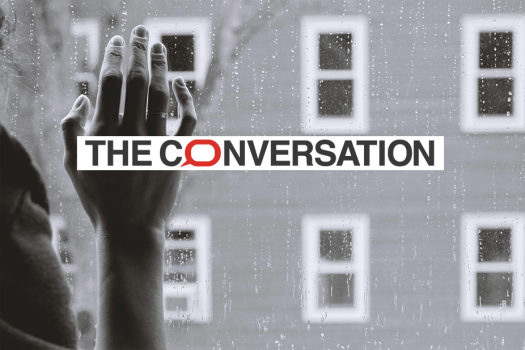Women's Health
Societal Challenges
Domestic Violences & Abuses
Social Cohesion & Community Building
Post-Doctoral Fellowships
United Kingdom
2019.08.30
Domestic violence against women: giving friends and relatives the keys to help
According to the World Health Organization (WHO), almost one third (30%) of women worldwide report having experienced some form of physical and/or sexual violence by their intimate partner in their lifetime. In the UK, two women are killed every week by a current or former partner. For survivors, domestic violence and abuse (DVA) can have profound physical and mental health repercussions. Despite the harm abuse causes, survivors often struggle to seek support from professionals. When they make the decision to disclose what’s happening to them, «the vast majority choose to access support from the people closest to them rather than from professionals », reports Dr. Alison Gregory, an AXA-supported researcher on DVA and health at the University of Bristol. «When this support is positive, studies have consistently demonstrated that it can effectively reduce ill-health sequelae for survivors». However, «people providing informal support frequently ‘get it wrong’ because they are not skilled, equipped or supported within the situation». Dr. Gregory’s project thus aims to develop interventions specifically tailored for friends, family members, neighbors and colleagues who want to help. The overall objective is one of dual benefit - to better equip this population so that they in turn might better support survivors.
In the UK, women’s refuges have seen their budgets reduced by nearly a quarter over the last seven years. With austerity measures slashing budgets of professional DVA support, «the role of friends and family members has really to come into the spotlight, the post-doctoral researcher points out. These people face high expectations from others, but their situation is often very complicated. They can be emotionally affected, and can feel conflicted about the situation. They can face threats, and may fear for their own safety in addition to fearing for the person they want to help. Despite the sensitivity of their position and the potential benefits of their involvement, it occurred to me that there was nothing supporting these people who may be providing vital support ». For the researcher, this realization came from personal experience. «I had a friend who experienced domestic violence. She never accessed any professional help. From her point of view, support from family and friends made all the difference. Back then, I felt ill-equipped to help her, even as someone who knew quite a lot about the subject. I wanted to know how other people were dealing with this situation, and that’s why I started investigating. »
Investigating the needs of family members and friends for tailored interventions
And indeed, Dr. Gregory’s present project builds on a research initiative started at the time of her PhD, which focused on how informal supporters were themselves impacted by the experience of helping a survivor, and the ways in which they tried to provide help. «Now, I want to use the knowledge and experience I’ve gained, to go even further, and provide these potentially crucial supporters with tools that are specifically tailored to their needs». Her approach is particularly innovative in nature. «Direct research with people providing informal support to survivors is in its infancy. There have been some studies seeking to equip by-standers to intervene in situations of domestic violence, but what I’m doing is different. I’m addressing the needs of the people closest to a survivor, who are already faced with this problem and entangled in the situation». To carry out this investigation, she will begin by recruiting a broad range of people who are providing informal support to a survivor. With these people, Alison will conduct exploratory work to establish and prioritize their needs and preferences for an intervention. Once the necessary components of the product or service are determined, the intervention will be developed. «Depending on what we find, we’ll either develop one or more types of products, adapted to the needs of different target populations: an app for young people for instance, and maybe other medias for older people. » The products will then be tested to assess their impact. Aside from submitting the findings to peer-reviewed publications, dissemination will be undertaken through participation in practitioner and social worker conferences, as well as through the publication of press releases, and social media posts, etc. «A lot of the dissemination will also be carried out via the organizations I’m collaborating with, namely Women’s Aid, AAFDA (Advocacy After Fatal Domestic Abuse), and the Hollie Gazzard Trust ».
As Dr. Alison Gregory appropriately describes, «DVA is a problem of epic proportions; it is globally widespread, high in prevalence, chronic in nature, and far-reaching in consequence». The Council of Europe, the World Health Organization (WHO), and the United Nations have all identified violence against women as a major public health issue. By pioneering research on how to resource informal supporters, the present project addresses a gap of paramount importance in the way DVA is currently being managed. Her initiative is all-the-more crucial given that, in the present context of austerity-related budget cuts, professional support for DVA survivors displays a worrying decline in many countries around the world.
Listen here Dr. Alison Gregory's advice to support someone living with domestic abuse. Podcast from SafeLives on SoundCloud, April 2020 (during the lockdown period due to Covid-19).
Domestic abuse: how to help someone you think might be at risk
Get advice from Dr. Alison Gregory
ARTICLE

Alison
GREGORY
Institution
University of Bristol
Country
United Kingdom
Nationality
British
Related articles
Mental Health & Neurology
Pandemics & Infectious Diseases
Women's Health
Covid-19
Mental Disorders, Anxiety & Depression
Pregnancy & Maternal Health
Neurodevelopmental Disorders
AXA Award
Spain
2020.08.31
The Effects of the COVID-19 Pandemic on the Mental Health of Mothers and Newborns
Early results are expected in less than 12 months and will help bridge a critical gap in research. Indeed, “in... Read more

Maria
FORASTER

